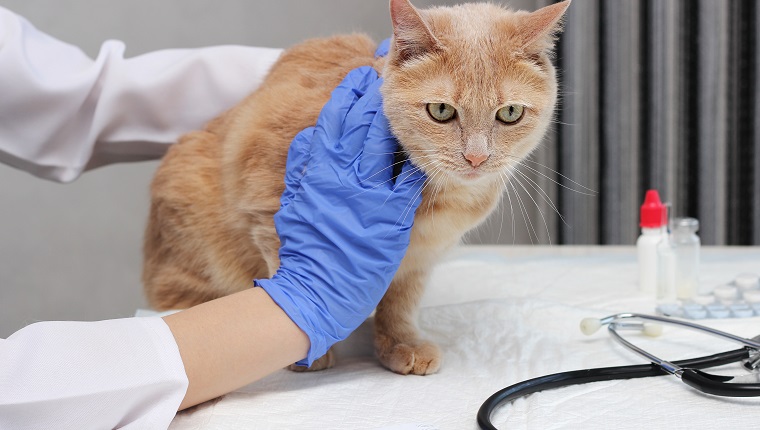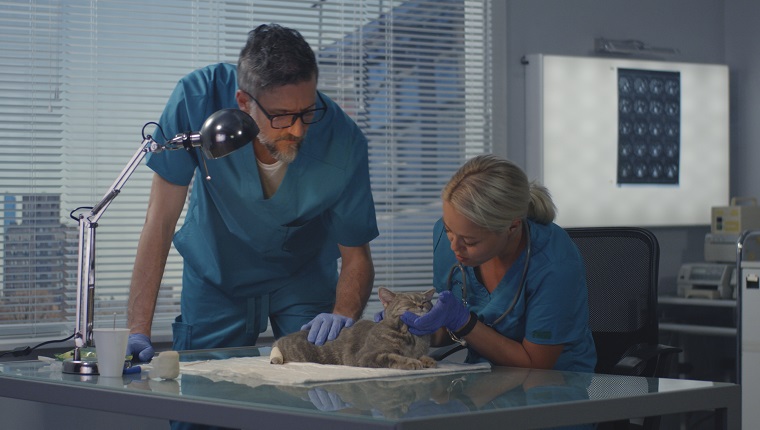Encephalitis in cats is a medical condition that can cause a cat’s brain to become inflamed. It can result from a number of factors, including infection by parasites.
Unfortunately, this is a potentially life-threatening condition for cats, so cat parents must seek medical help immediately after any symptoms present themselves.
If you see signs that your kitty might be suffering from brain inflammation, then you must consult your veterinarian for a proper diagnosis and course of treatment. Here’s what you should know about the symptoms, causes, and treatments of encephalitis in cats.
Symptoms Of Encephalitis In Cats
Encephalitis in cats can result in a number of symptoms depending on which exact part of a cat’s brain has been affected. Some of the most common symptoms include:
- Seizure
- Tilting the head to one side
- Fever
- Issues with vision
- Circling
- Seeming depressed
- Acting less responsive
Causes Of Encephalitis In Cats

The precise cause of encephalitis in cats is unknown in many instances. In other cases, viral, fungal, and bacterial infections may cause the condition.
Additionally, parasitic infections can result in brain inflammation. Housing a cat in a cage that has previously held an infected raccoon or skunk can often result in the cat contracting this condition.
Veterinary Treatments
If you suspect that your cat is suffering from encephalitis, then your veterinarian will want to carry out a full physical examination. They’ll also ask about any recent circumstances or interactions that might have resulted in your cat developing brain inflammation.
The vet will order blood and urine test. Additionally, they may use X-rays, CT scans, and MRI scans to investigate further. They may also consider collecting a fluid sample from the brain and spinal cord and sending it to a laboratory for further analysis to confirm a diagnosis.
When it comes to treatment, your cat might need a period of hospitalization. This is so that the vet can treat the root cause of the condition.
Many times, vets recommend medication, including broad spectrum antibiotics. As ever, if your vet prescribes any medicine for your cat, it is vital that you stick to the precise dosage and frequency instructions along with completing the full course of medication.
While your cat recovers, it is imperative that you keep up regular visits with their vet. This is to monitor the state of the condition and make a decision on whether your cat might require a second round of treatment.
Has your cat ever developed encephalitis? Did your vet figure out the cause of the inflammation? Then tell us all about it in the comments below.




